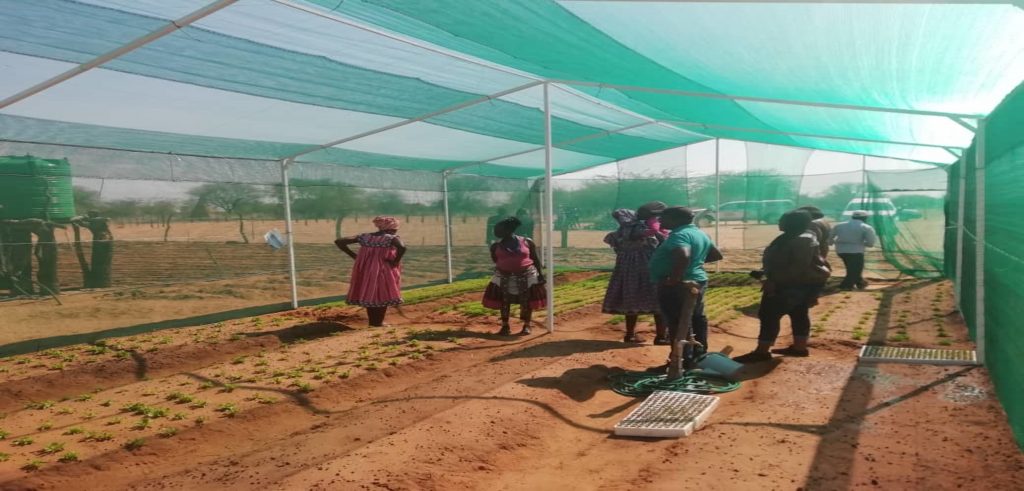Food Security

Funded by Bread for the World (BftW), the goal of the project is to increase farmers’ awareness and adoption of improved agricultural and farming techniques in Omusati and Ohangwena regions of Namibia. In Ohangwena region, implementation take place in 3 villages namely Okatope ka melila, Eembidi, and Enghandja. In Omusati region, implementation take place in Oneheke, Ohendjeno and Onambome villages.
The project has 4 thematic areas namely: Agroforestry, Poultry Production, Home Gardening and Water Management. Project beneficiaries age ranges from 16 to 65 years. Participants are composed of the small-scale farmers, the disadvantaged and vulnerable in the community, and jobless youth. They are referred to as contact farmers (CF).
Project beneficiaries must own less than ten heads of cattle and no more than ten acres of land; be residing in the locality and self-identify their households as food insecure. The project team works with local headmen and key local leaders to select the target groups. The local government and national officials, the selected community Contact Farmers (CF), and head men are all involved at all levels of the project cycle.
The NACDO gender policy is set to enhance more opportunities for women and programs. Therefore, the project aspires to have a gender ratio of 2:1, meaning that for every male participant there are two female participants except for the well rehabilitation where the ratio reverses due to labour intensity requirement.
The project follows Farmer to Farmer approach. In the initial stage, Contact Farmers are trained and given skills. They implement knowledge on their own fields under the supervision and support of the NACDO team. The Contact Farmers then pass skills to fellow farmers. Fellow farmer’s skills transfer is implemented in the second phase of the project. A Contact Farmer is a community member trained with technical skills that can supervise and advise other farmers. This will also improve accountability and help with administrative decisions. Land decisions are made by headmen so their involvement is crucial.
